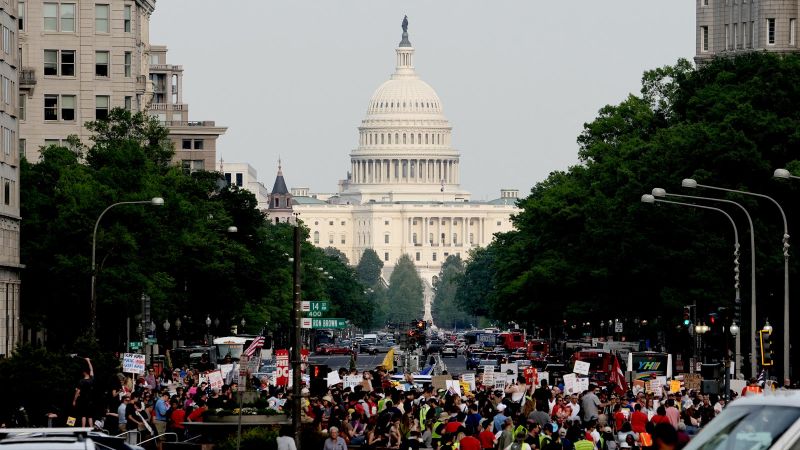The landscape of federal employment is on the verge of a significant transformation, driven chiefly by the recent actions taken by House Republicans who are advocating for dramatic changes to federal workers’ retirement benefits. This initiative is being proposed as part of a larger tax reform and spending cut package aimed at obtaining approximately $50 billion in savings over the next decade from the retirement system. This shift comes on the heels of the Trump administration’s ongoing attempts to reduce the size of the federal workforce, raising alarms among government employees who now fear they could be pushed out of their positions or find themselves with diminished benefits.
The House Oversight Committee has recently approved a plan that could fundamentally alter the structure of benefits for federal workers. Jacqueline Simon, the policy director for the American Federation of Government Employees (AFGE), which represents a significant number of federal workers, has voiced concerns. She indicated that the proposed modifications would likely increase the cost of retirement benefits while simultaneously reducing the benefits by changing the calculation formulas. This dual approach could pressure federal employees close to retirement to make hasty exits to secure their current benefits before any changes take effect.
Historically, Congressional Republicans, along with President Trump during his term, have aimed to reform the federal pension system. However, their initiatives have often stalled or failed to progress significantly. Given the current political climate, there is a renewed momentum for these proposed changes, heightening the likelihood that they may come to fruition. At this point, the specifics of the Republicans’ grand legislative proposal remain under wraps, with the bill awaiting further approval from both the House and the Senate, suggesting a complex legislative path ahead.
Rep. James Comer, the chair of the House Oversight Committee, defended the proposed changes as efforts to relieve the burden on American taxpayers. In his remarks, he expressed the belief that a substantial portion of the benefits costs are financed by taxpayers in the private sector, as well as through increasing federal debt. This argument reflects a growing narrative within some political circles that federal workers’ pensions, traditionally seen as earned entitlements, are somehow unsustainable or burdensome.
However, this perspective is met with some dissent, as illustrated by Rep. Mike Turner from Ohio, who broke ranks with his party to oppose these proposals, emphasizing that federal pensions represent commitments made to workers for their dedicated services. This division within the party indicates the contentious nature of the debate surrounding federal employee benefits and raises questions about the future stability of these programs.
One of the most critical aspects of the proposed measure is a significant increase in the Federal Employees Retirement System (FERS) contribution rate, potentially affecting many current employees, particularly those hired before 2014. New and prospective retirees may also face substantial cuts, with new structures potentially lowering the benefits calculation base from an average of the highest three years to five years of earnings, a shift that could lead to reduced monthly compensation for retirees.
Union leaders have expressed considerable concern regarding the impact of these changes. Many older federal employees are particularly apprehensive about their financial futures. Some feel that these adjustments constitute a “bait and switch,” undermining trust in the government’s commitments to its workers. For instance, within the ranks of correctional officers and other federal service positions, there is a palpable fear that these measures will make it exceedingly challenging for them to retire under favorable conditions.
Further complicating the picture is the reality at agencies such as the Social Security Administration, where a considerable number of employees are nearing retirement age. Reports from union representatives indicate that many are weighing their options and considering filing retirement papers sooner rather than later, driven by concerns over potential benefit reductions.
In conclusion, the ongoing discussion surrounding federal retirement benefits is rife with uncertainty and anxiety, particularly for those whose professions rely heavily on stable and reliable pension structures. With legislative processes unfolding, federal employees find themselves at a crucial juncture, where the implications of policy changes could redefine the landscape of public service benefits for years to come. As debates continue, the concerns of these workers underscore the need for a thoughtful approach to any proposed reforms.



